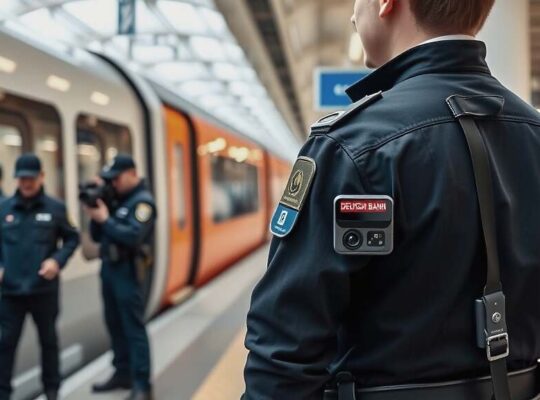The newly appointed CEO of Deutsche Bahn, Evelyn Palla, is initiating a radical restructuring of the national rail operator, signaling a potentially seismic shift in its operational and managerial culture. Palla, in an interview with “Bild am Sonntag”, declared an intention to “turn the corporation on its head” advocating for a complete overhaul viewed by some as a desperate attempt to salvage public trust and competitiveness.
Palla’s strategy prioritizes decentralization and a move away from the highly centralized decision-making process historically associated with the Bahntower headquarters. A core tenet of her plan involves scrutinizing every role within the organization to assess its direct value to customers, demanding that administrative functions actively serve the needs of railway workers. “The administration must serve the rail workers” she stated, indicating a potential curtailment of bureaucratic layers and a focus on streamlined efficiency.
The restructuring extends to the executive leadership, with Palla promising a significant reduction in bureaucracy and an increased emphasis on empowering frontline personnel. Decision-making authority is to be pushed downwards, placing responsibility and agency in the hands of those directly involved in railway operations. This proposition raises questions about potential power struggles and the effectiveness of operational teams should they lack sufficient strategic oversight.
Beyond internal reforms, Palla addressed long-standing criticisms regarding the quality of service. Pledges to tackle issues such as unclean trains, dilapidated stations and malfunctioning amenities – including the infamous closure of onboard dining services – are aimed at restoring a sense of pride and reliability within the system. Whether these improvements can be swiftly implemented given existing resource constraints remains to be seen.
In an attempt to improve passenger experience, Deutsche Bahn intends to introduce a digital “construction site reporter” to aid in journey planning. While integration into the DB Navigator app is promised, critics argue that this is a reactive measure and fails to address the underlying issues contributing to frequent disruptions and delays.
The scope and speed of Palla’s proposed changes are drawing both excitement and skepticism. While the ambition to improve Deutsche Bahn’s image and performance is welcomed, the practical challenges of breaking decades of ingrained practices and the potential for internal resistance are considerable. The coming months will be critical in determining whether Palla’s radical strategy can deliver the transformative results desperately needed to revitalize Germany’s national rail network.












